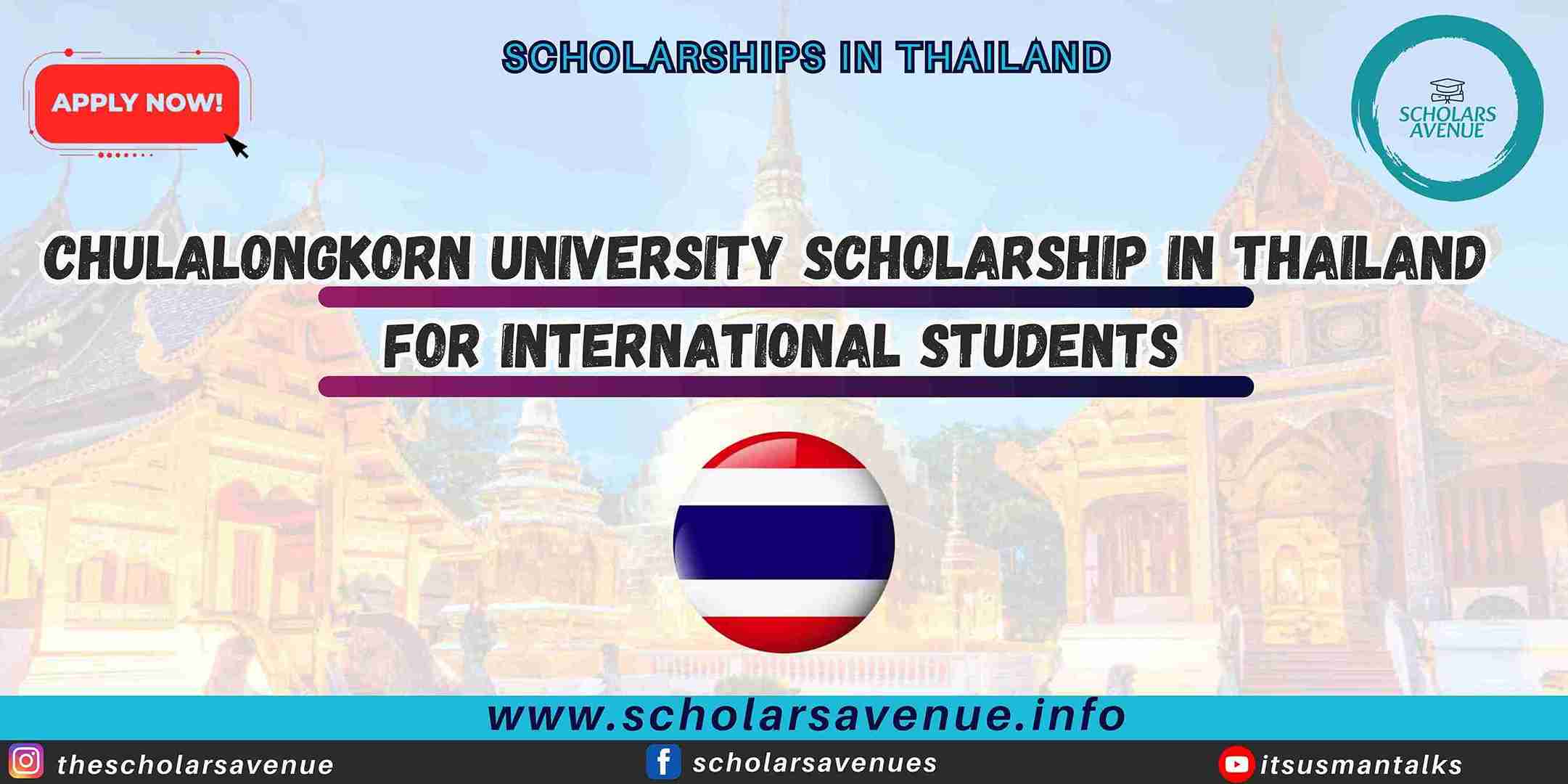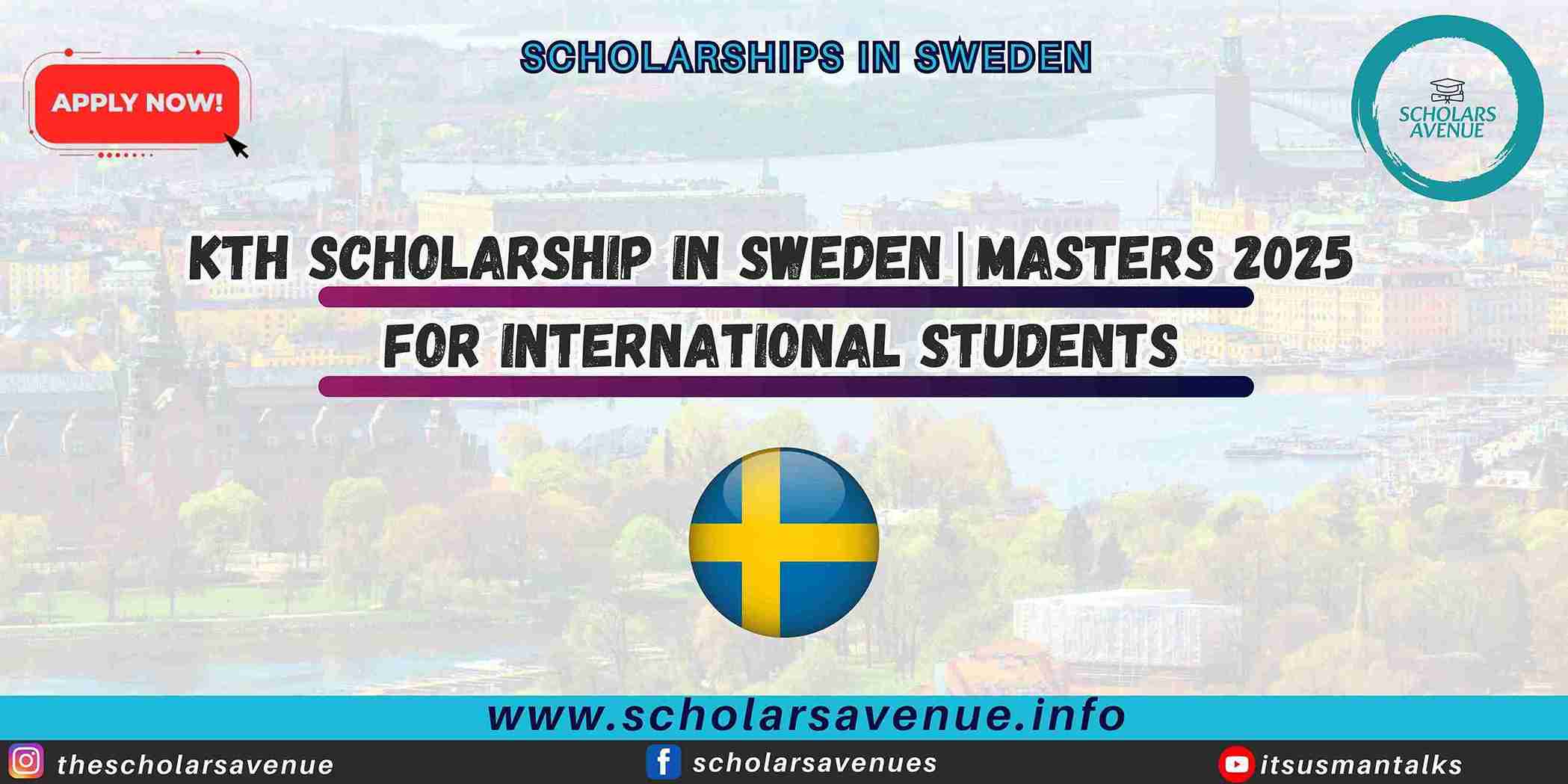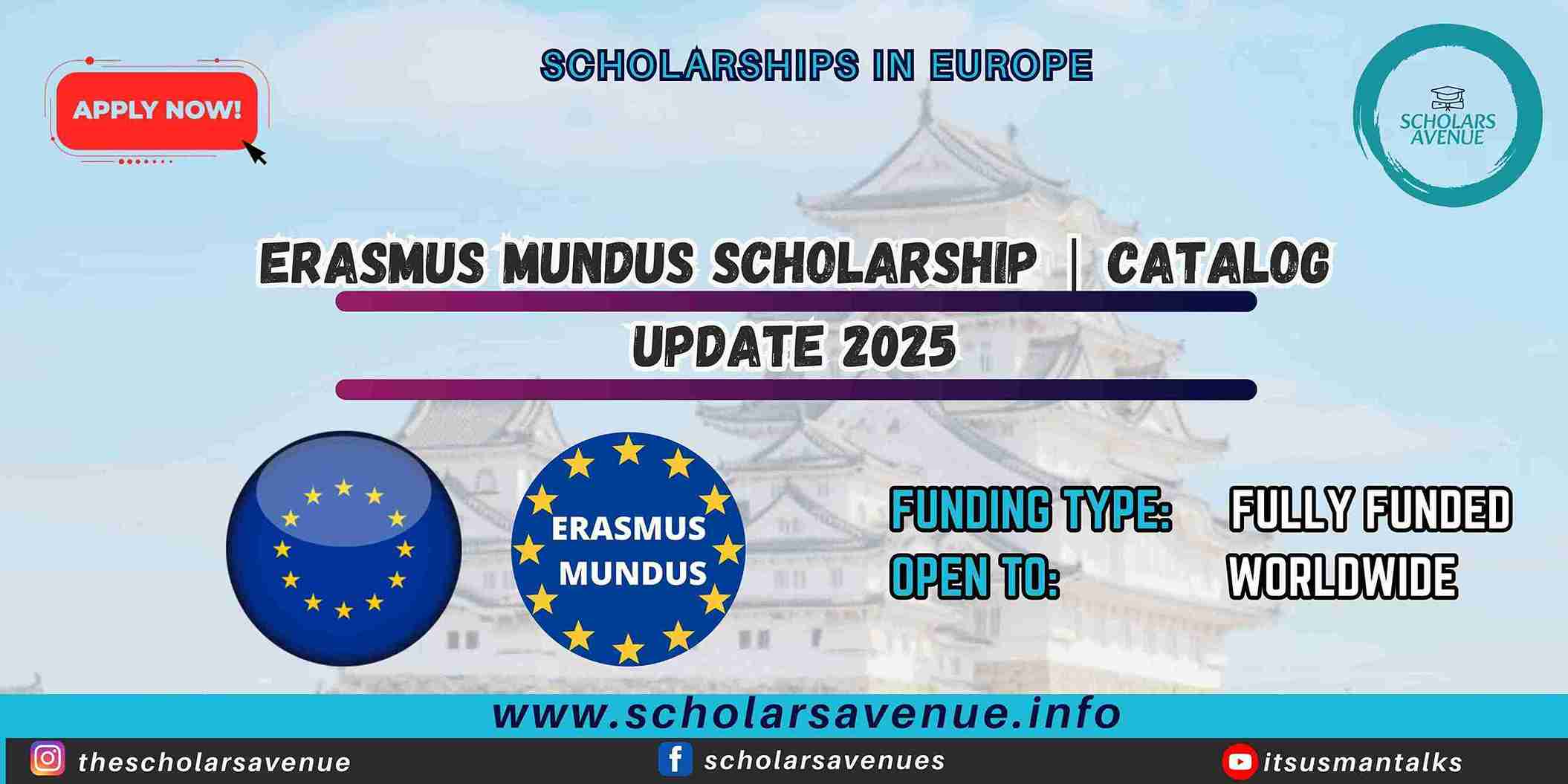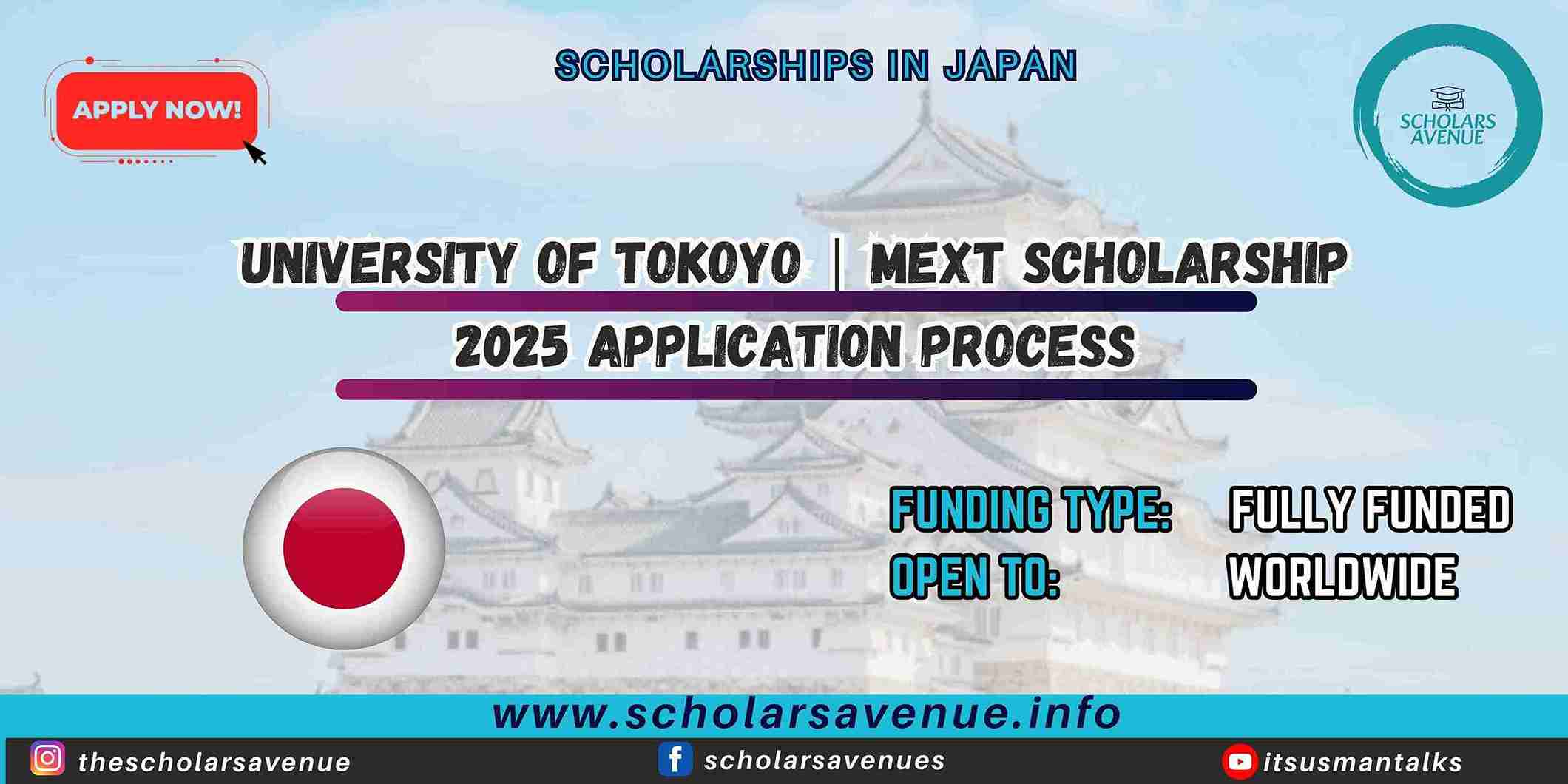The ADB Japan Scholarship 2025 offers a fantastic chance for students from Asia and the Pacific to further their education with a fully funded graduate program. Sponsored by the Japanese government and managed by the Asian Development Bank, this scholarship provides financial support for about 135 students each year. Recipients can study in important fields like economics, business, science, and technology at top universities across nine countries. The goal of the ADB Japan Scholarship 2025 is to help future leaders gain the skills they need to bring positive changes to their home countries.
The scholarship covers all expenses, including tuition, living costs, travel, and medical insurance, so students can focus entirely on their studies. This full financial support removes any financial barriers, allowing scholars to make the most of their academic opportunities. By providing this level of support, the ADB Japan Scholarship 2025 aims to build a network of knowledgeable and skilled individuals who will contribute to their communities and nations after graduation.
Details of the ADB Japan Scholarship Program:
- Host Country: Various countries across Asia and the Pacific, including Japan, Hong Kong, India, Pakistan, USA, Philippines, New Zealand, and Thailand.
- Host Institution: Designated universities in ADB member countries
- Program Level: Master’s Degree
- Scholarship Duration: 1 to 2 years
Also, check the Swedish Institute Scholarship 2025-2026 | Fully Funded
Benefits of the ADB Japan Scholarship Program
The ADB Japan Scholarship Program offers numerous benefits to selected scholars:
- Full Tuition Fees: Paid directly to the university
- Monthly Subsistence Allowance: Covers housing and living expenses
- Book and Instructional Materials Allowance: To purchase necessary study materials
- Travel Expenses: Includes economy class air travel to and from the host country
- Medical Insurance: Covers health-related expenses during the study period
- Special Research Grant: Available for research scholars to support their projects
Also check the Cheapest Universities in UK for International Students 2025
Eligibility Criteria for the ADB Japan Scholarship Program
To be eligible for the ADB Japan Scholarship Program, applicants must meet the following criteria:
- Nationality: Be a national of an ADB borrowing member country and a Japanese ODA scholarship-eligible country
- Dual Citizenship: Must not hold dual citizenship of any developed country
- Academic Qualification: Hold a bachelor’s degree or its equivalent with a strong academic record
- Work Experience: Have at least two years of full-time professional working experience after completing a university degree
- Age: Must be under 35 years old at the time of application (exceptions can be made in special cases)
- Health: Be in good health
- Language Proficiency: Demonstrate proficiency in English, both oral and written
- Commitment to Home Country: Agree to return to their home country and work for at least two years after completing their studies
Participating Institutions for ADB Japan Scholarship
Each year, the ADB Japan Scholarship Program (ADB-JSP) supports 300 students pursuing higher education at institutions across nine countries in the Asia-Pacific (APAC) region, including Japan, India, Hong Kong, New Zealand, Pakistan, the USA, Singapore, the Philippines, and Thailand.
Here are the Eligible courses and universities for the ADB Japan Scholarship.
| Academic Institution | Eligible Programs | Country |
|---|---|---|
| International University of Japan | MA in Economics; MA in International Relations; MA in Public Management; MA in International Development; MBA | Japan |
| The University of Hong Kong | MSc in Urban Planning; MSc in Urban Design | Hong Kong |
| The University of Auckland | MA in Development Studies; Master in International Business; MSc in Environmental Science; Master of Public Health; MTech/ME programs | New Zealand |
| Ritsumeikan University | Master’s in Economics | Japan |
| Lahore University of Management Sciences (LUMS) | MBA | Pakistan |
| University of Tsukuba | MA in International Public Policy | Japan |
| Asian Institute of Technology | MSc Courses; MEngg Programs | Thailand |
| National University of Singapore | MBA | Singapore |
| Ritsumeikan Asia Pacific University | MSc in International Cooperation Policy; MSc in Asia-Pacific Studies | Japan |
| Saitama University | Master’s in Civil & Environmental Engineering | Japan |
| University of Tokyo | Master in Urban Engineering; Master in International Studies; Master in Environmental Studies; Master in Sustainability Science; Master in Health Science; Master of Public Policy; Master in Civil Engineering & Infrastructure Development | Japan |
| International Rice Research Institute | MSc Courses; MA in Agronomy | Philippines |
| Keio University | Master’s in Science; MSc in Engineering; Master of Economics; Master of Systems Design and Management; Master of Systems Engineering; Master’s in Management and Taxation Policy | Japan |
| United Nations University | MSc in Sustainability | Japan |
| National Graduate Institute for Policy Studies (GRIPS) | 1-year and 2-year Master’s Programs in Public Policy | Japan |
| Kyushu University | Courses in Bioresources Sciences; Biotechnology & Bioscience; Agro-Environmental Sciences; Agricultural & Resource Economics; Business and Economic Law in Asia; Global Governance; Law and Innovation | Japan |
| East-West Center | Master’s Programs | USA |
| Hitotsubashi University | Asian Public Policy Program | Japan |
| Kobe University | Master of Law; Master of Economics; Master of Political Science; Master of International Studies | Japan |
| Asian Institute of Management | MBA; Master in Development Management | Philippines |
| Thammasat University | Master in Economics; MEngg | Thailand |
| Tokyo Institute of Technology | Master’s Programs | Japan |
| Kyoto University | International MBA; Master’s in International Environmental Management; Master’s in Food and Environment; International Course in Civil Infrastructure Management; International Course in Regional & Urban Development | Japan |
| Lee Kuan Yew School of Public Policy | Master’s in Public Policy | Singapore |
| Nagoya University | MA in International Development | Japan |
How to Apply for the ADB Japan Scholarship Program
Follow these steps to apply for the ADB Japan Scholarship Program:
- Choose a Program and Institution: Select an approved master’s course at one of the designated institutions.
- Submit Application to the University: Contact the chosen institution for information and application forms. Submit the completed application with all required documents.
- Receive Admission Offer: If accepted, the university will send a shortlist of candidates to ADB.
- ADB Selection Process: ADB reviews applications, and selected scholars are notified through the institution.
CSC Chinese Government Scholarship 2025 | Step by Step Process
Documents Required
Applicants need to prepare and submit the following documents:
- Completed Application Form: Available from the chosen institution
- Proof of Income: Latest income tax return or certification of salary
- Family Income Statement: To verify financial need
- Academic Records: Copies of transcripts and diplomas
- Study Plan: Outline your academic and career goals
Looking to maximize your chances of acceptance?
Consider using our Professional Services to polish your application and stand out from the crowd.
For detailed videos on relevant opportunities check out:
Application Deadline
The application deadline for the ADB Japan Scholarship Program varies by university. Each institution sets its own admission deadline, so applicants should check with their chosen university for specific dates.
Frequently Asked Questions (FAQs)
What is the ADB Japan Scholarship Program?
The ADB Japan Scholarship Program is a fully funded scholarship for international students from Asia and the Pacific to pursue master’s degree studies at designated universities.
Who is eligible for the ADB Japan Scholarship Program?
Nationals of ADB borrowing member countries who meet the academic and work experience requirements are eligible. Applicants should not have dual citizenship with a developed country.
How do I apply for the ADB Japan Scholarship Program?
Apply to a designated university and program, submit the required documents, and follow the application process outlined by the institution and ADB.
What expenses are covered by the ADB Japan Scholarship Program?
The scholarship covers full tuition fees, a monthly allowance for living expenses, travel expenses, medical insurance, and an allowance for books and instructional materials.
How long is the scholarship valid for?
The scholarship is valid for one year, with the possibility of extension to a second year for master’s programs.
What fields of study are eligible under the ADB Japan Scholarship Program?
Eligible fields include economics, business, science and technology, law and public policy, development studies, and more.
Can applicants work while studying under the ADB Japan Scholarship Program?
The scholarship does not typically allow for employment during the study period, as it is designed for full-time academic engagement.
What is the selection process for the ADB Japan Scholarship Program?
The selection process involves the host institution shortlisting candidates, ADB reviewing applications, and final approval by the Japanese executive director.
Are there age restrictions for the ADB Japan Scholarship Program?
Applicants should be under 35 years old, with exceptions in certain cases endorsed by the Government of Japan.









